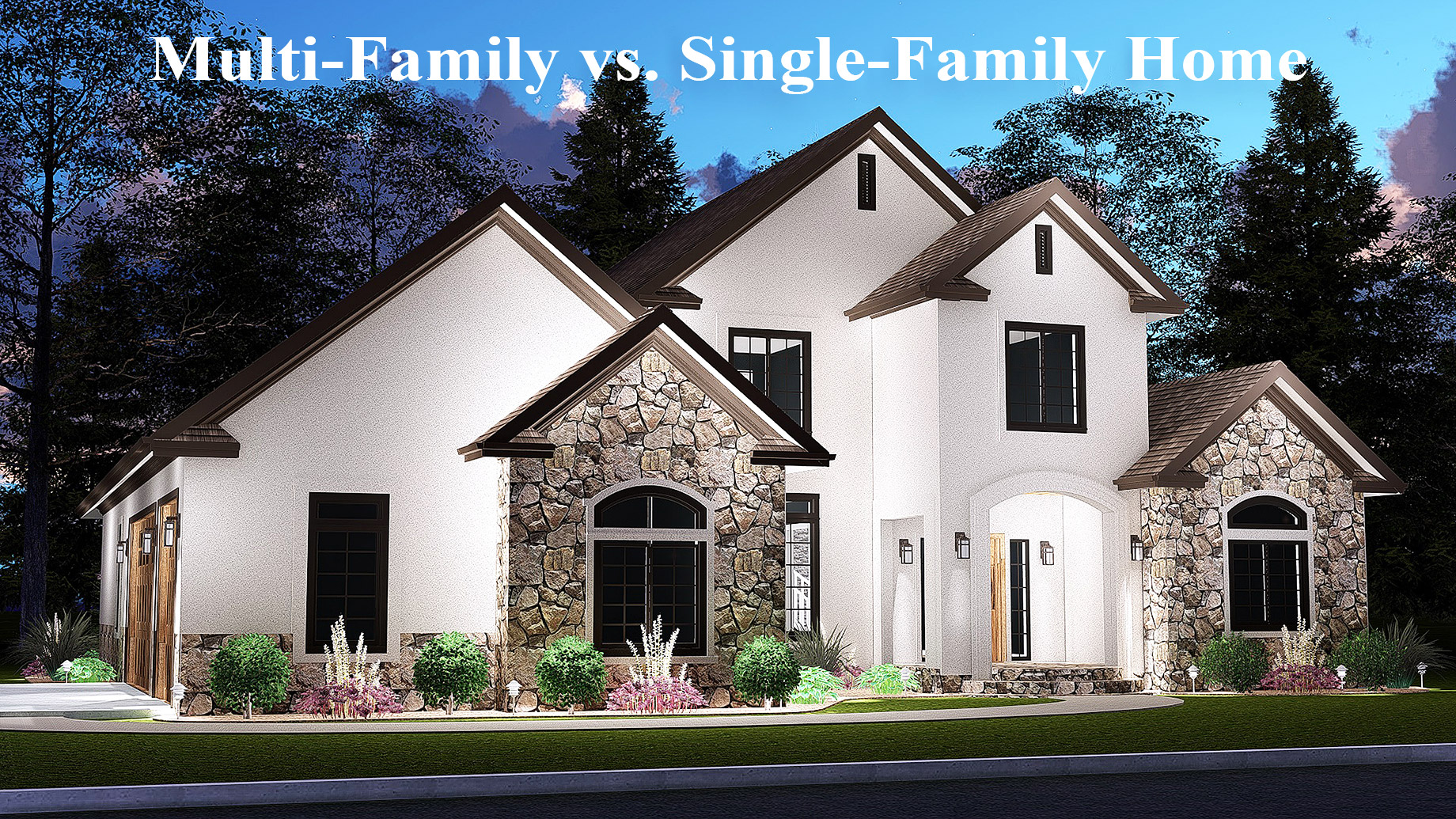
If you’re ready to jump into real estate investment, you typically have plenty of options and decisions to make. Do you invest in a single-family home that’s ideal for a family to rent, or do you spend a little more money and purchase a multi-family home? Both ventures have pros and cons, and it will boil down to your personal preferences.
Single-Family Homes: Advantages
There are many advantages to investing in a single-family home. It can be an easier option, especially if you’re a first-time real estate investor. Between a lower down payment, more accessible financing, and less work, single-family homes are easier and more affordable to get you in the real estate investing door.
There are almost always more single-family homes on the market at any given time, so you have more options versus purchasing a multi-family property. These properties are often less expensive than multi-family homes, so you’ll need less money to get started.
Financing a multi-family home can be a bit tricky if you’re buying a property with more units beyond a fourplex. Single-family home financing is straightforward since it’s a common mortgage type.
Only having one unit to rent out can also be considered an advantage. Depending on your market, you might have a lot of interest in your property. Having plenty of applications allows you to hand-select your tenants, giving you the best chance of having trustworthy people renting your home. If you opt for a large multi-family property, you might have more lax parameters to avoid having vacancies.
There is less responsibility for owning a single-family rental property versus a multi-family home. If you’re buying a newer home, you can likely minimize the maintenance required, but anything can happen. Multi-family homes can have a lot more issues and require you to have a nest egg for when things go awry.
Suppose you decide that being a landlord isn’t for you, or your circumstances have changed. You need to sell your investment property. In that case, a single-family home can be a bit easier to sell versus a multi-family property.
Single-Family Homes: Disadvantages
Owning one single-family property won’t afford you the cash flow of a multi-family home, and vacancies can be detrimental. If your home sits vacant for a while, you’re still on the hook for all the costs on your own, which can be very expensive.
If becoming a real estate investor is your goal for a full-time job, starting with single-family properties can be incredibly difficult to scale. If you purchase four single-family homes, you have to go through the process four times, where you can do that by purchasing one fourplex.
Multi-Family Properties: Advantages
Suppose you’re ready to jump into real estate investing, and you have the funds to do so. In that case, a multi-family property is a fantastic investment if you find the right property. While no real estate investment is a sure thing, multi-family properties can be pretty close if you find a good one.
While the initial investment for a multi-family property can be more, your cost per unit is lower than purchasing a single-family home. You also aren’t down and out if one of your units isn’t being rented, as you have the cash flow from the other units. Not only is this ideal for you if something happens that you need to pay for but you’re not left trying to keep multiple units afloat with zero cash flow. A situation like this is a real possibility with a single-family home.
Suppose you acquire a multi-family property and do significant upgrades before renting it. In that case, you’re increasing the property value to all the units, which can pay off in spades.
Depending on the size of your multi-family property, you might have an easier time getting a mortgage, as with some loans, you can have some breaks. Suppose you choose to live in one of the units. In that case, you can qualify for an owner-occupant mortgage or use the future rental income towards the loan in some cases. If you want to purchase a property with many units, you will need a commercial mortgage, which can be difficult to get.
Multi-Family Properties: Disadvantages
There are a few distinct disadvantages of owning a multi-family property. If you have a large property and you’re looking to fill many units, you might not be able to be as picky with your tenant screening process. If you aren’t getting many applications, you might become desperate and just take whoever is interested, which could be a recipe for disaster. If you’re in a great location with a thriving rental market, you likely won’t have this issue for a while.
Becoming a landlord sometimes means also becoming an amateur plumber, construction worker, and maintenance personnel to save some funds. When it comes to a multi-family property, you’ll likely need to hire professionals more often than not, so having a great relationship with local business owners in your area is critical.
Depending on the state of your local real estate market, multi-family properties might be more challenging to sell. They can be more difficult for people to qualify for, require more money upfront, and they’re just not the most high-demand property type.
Should you invest in a multi-family or single-family home this year?
Your budget might be the deciding factor in this decision, but all investments have benefits and downsides. If you lack time and money, a single-family home takes less work with less money than managing multi-family homes. With multi-family homes, you’ll likely have a higher return on investment, better cash flow, and often a better investment opportunity. However, if you’re looking to invest this year, you should make an educated and fiscally-responsible decision for your circumstances.